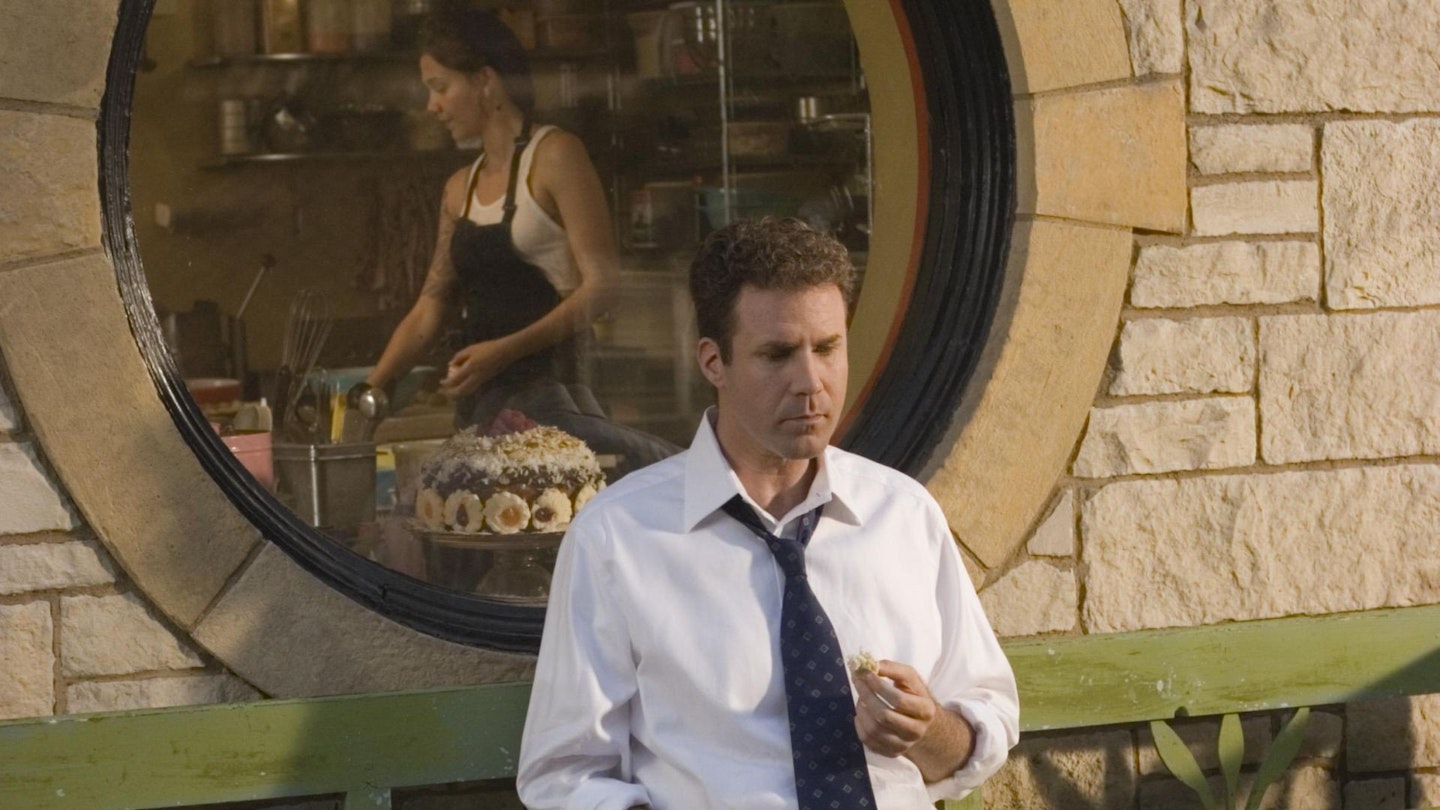The brainchild of hot new kid on the writers’ block Zach Helm, Stranger Than Fiction is perhaps best described as Adam Sandler’s Click for Guardian readers, or a watered-down version of Eternal Sunshine Of The Spotless Mind — neither of which is actually a criticism. Playing on the oft-explored collision between reality and fantasy (it owes a lot to everything from Pirandello to Woody Allen’s short fiction via The Twilight Zone), Stranger takes Charlie Kaufman-styled hijinks with logic and form but imbues the smarts with more heart than headscratching. The result takes a while to find its feet and isn’t wholly successful, but delivers enough strong performances, engaging invention and sweetly skewed charm to brighten up any dark December night.
Turning a dramatic device (the act of narration) into the plot itself, Helm comes up with some inspired, funny licks but never sells out his premise for easy laughs. In a genius idea, Helm has Crick (Will Ferrell) trying to solve his predicament by going to a literary professor (Dustin Hoffman on good form, in shaggy I heart Huckabees mode) who tries to analyse Crick’s anxieties via academic dissection — Hoffman’s Hilbert throwing question after question at Crick, trying to decipher exactly what kind of novel Crick is trapped in, is a comedic delight. Avoiding Frat Pack-style schtick, Will Ferrell is initially unnerving as the buttoned-down automaton, but he successfully nails each of Crick’s emotional states (bewilderment, anxiety, uplifting liberation) as the accountant’s existence blossoms and he starts to live the life he wants.
A filmmaker capable of blowing hot (Monster’s Ball, Finding Neverland) and cold (Stay), Forster details Crick’s mindset through interesting composition, a nifty sense of architecture to delineate boxed-in characters and a funky use of criss-crossing diagrams to lay bare the mundanity of Crick’s life. It is the less obvious approach — the easy option would be to create some highly stylised artificial world — but the slightly off-kilter feel does much to keep the reality and fantasy in cahoots with each other.
Yet some of the film’s best moments have nothing to do with all this meta-malarkey. The scenes involving Crick’s relationship with tattooed, militant baker Ana (a subtly sexy Maggie Gyllenhaal) are more likeable, original and tender than anything you’d find in most straightlaced rom-coms. There’s a shy, awkward conversation that takes place on the hinge of a bendy bus and sees Crick wafted back and forth as the bus makes corners; Ana breaking down Crick’s defences with the double-whammy of milk and cookies; the Christmassy lights that lend a touch of magic to their first date and, best of all, Crick wooing Ana with the perfect bunch of flowers. If the pair never totally convince as a couple (what does she see in him?), the detail and arc of their tentative relationship could melt the hardest heart.
The darker flipside of Stranger Than Fiction charts the agonies of reclusive writer Kay Eiffel, chainsmoking for England, searching for inspiration in the terminal wards of hospitals as she struggles to shake off her writer’s block and find the best way to kill Crick. Emma Thompson has a fantastic time playing the strung-out author to the limit, but always keeps Eiffel empathetic and likeable.
The problem with all such high-concept stories is that their endings never quite live up to the promise
of their premise and, as soon as we learn that Eiffel’s characteristic trope as a novelist is to murder her character at the point at which they are most happy, the question of how Crick’s dilemma will resolve itself hoves into view. For all his storytelling dexterity, Helm can’t conclude his tale with the courage he has at the start, and the ending will more likely annoy than delight. But by this time, both Crick and the film itself have earned enough goodwill in the bank to mitigate against any gripes. If only all postmodernism was so endearing and entertaining.

